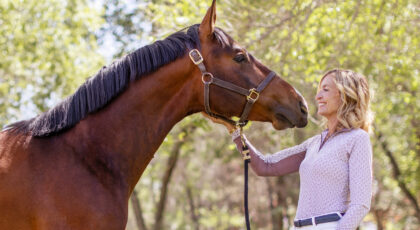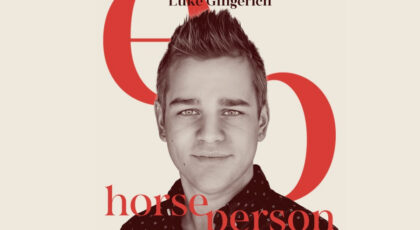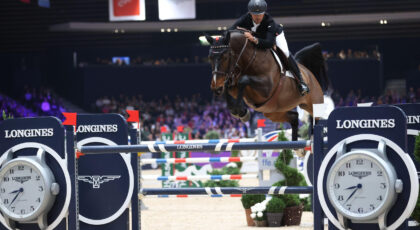I’ve been avoiding the phrases “horse sense,” “horse play” and “horse around” for a long time for a number of reasons.
Mostly because they aren’t in common use anymore and, when they are used, it’s typically by people who know little about horses. But, far be it from me to let a little something like convention get in the way, so here we go.
Horse sense
“Bob sure has some horse sense,” you might have heard someone in the 1830s. Back then it would have been a compliment. You’re saying Bob has a practical way of thinking, that he makes logical decisions, has good judgment and/or common sense.
Apparently, this term was based on the sensibility of horses. And while I understand horses are quite clever—for instance, they can find their way home if we get lost on a trail ride and a horse is going to sense a cougar lurking in the bushes long before we will—I do wonder if whoever coined this phrase really knew horses at all.
It’s true, plastic bags were still a thing of the future in the 1800s, but there were certainly birds that flew out of bushes and squirrels that darted across lanes. There were umbrellas, puddles and flapping coats. There were cattle, sheep and chickens milling about and smelling weird. There were strollers, screaming children and hats blowing down the street.
And these are, just off the top of my head, a few of the things that the horses of today approach wide-eyed, if they approach at all.
Most horses opt for the fail-safe practice of a 180-spin followed by a burst of speed nobody, including the horse, was prepared for. Perhaps horses 200 years ago were bolder. More seasoned and exposed to the unpredictability of tarps and sandbags.
Maybe the horses of today are mollycoddled because if I told someone they had horse sense I would be telling them that they are illogical, fearful and frankly a little irritating around plastic bags.
Horseplay & Horse Around
When I see horses running and playing in a field, I can assure you it’s not with love and joy in my heart. It’s with fear and terror in my soul. I know it’s only a matter of time before one of them limps away from the scene due to one wrong turn, one bad slip or one hard kick. The fun and games will be put to a halt and a vet will be called.
It makes you wonder if the people who use these terms know horses.
I have a book that defines these sorts of expressions. It said that “horse around” and/or “horseplay” means, generally speaking, joking around, making fun of someone or playing boisterously.
But towards the end of this definition, things took on a decidedly different tone.
Case in point, and I will leave the source of this out as I’m embarrassed for them: under the heading of “Horse Around” is a sentence that reads “Cracking jokes on minute and cutting capers the next, such a person likes to horse around, much like a stallion turned into a pasture with a couple of mares.”
Oh, I don’t think we would call what that stallion is about to do to those mares as “horsing around.”
I know what the author is trying to say, and he isn’t technically wrong. The term horse around or sometimes just the verb horse first came about in the 1500s and while I understand the meaning when it comes to joking around, I was unaware it also meant “when males copulate with females.” This must be how the author of the aforementioned book, which was written in 2000, came up with the idea for his example of the stallion and two mares having a great deal of fun out in the field. He is clearly uninformed about the romantic nature of horses.
It was not my intention to jump on this soapbox again, especially after last week’s post, but these expressions were what I wanted to tackle and I simply couldn’t ignore such a preposterous sentence that was written by, well, not a woman.
We no longer live in the 1500s and while I appreciate the history of the expression is unchangeable, horse sense is clearly something the author is lacking.
Here’s to hoping next week I just write about horses…




 November 1, 2023
November 1, 2023 




























